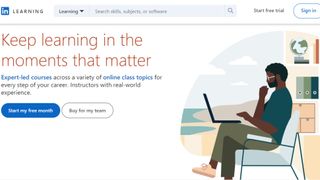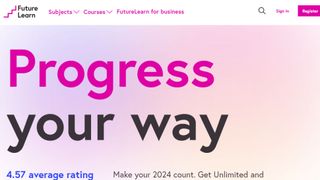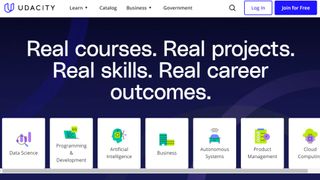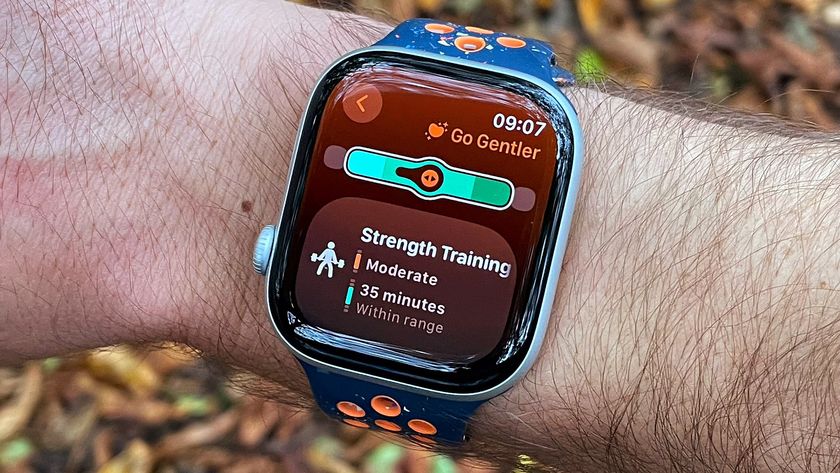Best online courses and online class sites of 2025
Learn new skills online

We list the best online courses and online class sites, to make it simple and easy to learn new skills and advance your career development using the internet.
The wide availability of distance learning courses means that long gone are the days of having to take a bus to attend a college class. Now, with available learning platforms and online streaming, there are a wide variety of skills that can be learned not just from the comfort of your home, but also in your own time and often at your own pace.
Websites abound that have online classes on demand. This can range from a single lecture on a specific topic, to a series of lectures to gain new knowledge in a field, to entire graduate level degrees offered by leading universities. You can even learn from professors on the other side of the planet via this method!
Course topics cover the spectrum. Some can be professionally oriented, designed to update skills for older workers, or those with a degree outside the area of study. Other courses are designed to supplement knowledge, offering additional study, such as advanced training for a certification exam. However, it is not all so serious, with coursework also available that borders on entertainment, with options for a cooking class, or film appreciation. In any case, in a competitive work environment, having some recent coursework can be an important CV builder, without having to do the rigors of a formal degree.
Reader offer: Top courses from $14.99 when you first visit Udemy
Udemy is an online learning platform where you can access over 25,000 courses all taught by professionals. Choose from a vast course catalog with topics ranging from programming to lifestyle.
Preferred partner (What does this mean?)
These are the best laptops for students.
The best online courses and online class sites of 2025 in full:
Why you can trust TechRadar
Best online courses and online class sites overall

Reasons to buy
Reasons to avoid
Coursera is an online educator that also focuses on college level education, and has partnered with leading universities including Arizona State University and Duke University, and also has alliances with many Fortune 500 companies. This platform is notable as the emphasis is on university courses, along with over a thousand free content videos, and also certificate programs. This content can be taken to acquire a college degree, all fully online.
The standout feature is the Guided Projects, which are done to allow the learner to put their newly acquired skills to use, under the watchful guidance of an instructor. Those looking to acquire some job ready skills, whether in the form of a certificate, a degree or an advanced degree, from a name brand university should take a look at this platform.
Read the full Coursera review.
Best online courses and online class sites for business

Reasons to buy
Reasons to avoid
Udemy is notable for its super large course catalog, a ridiculously large 155k courses focused on business content taught by over 56k instructors. This is driven in part by the over 7,000 enterprise customers. Users are sure to like the comments for the course that are integrated into the platform, the transparency in when the course was last updated, along with the high quality trailers to help assess if a course is right for your needs.
We also noted the choice of tiers, and the longer 30-day money back guarantee period. Some downsides do encompass that some courses need to be purchased individually as opposed to a monthly subscription, the limited support options that are missing a direct phone number and an email address, and the bugs with the apps, especially with offline viewing. For those looking for the right business course, with support materials to support the learning, Udemy is worth a good look.
Read the full Udemy review.
Best online courses and online class sites for professional skills

Reasons to buy
Reasons to avoid
LinkedIn Learning is an educational outgrowth of the highly popular, professional networking platform. As you might suspect, this platform is focused on development of professional skills, with a catalog that is expansive at over 16,000 offerings. The plan is simplified, with only a single tier, but it can be subscribed to either annually or monthly. We also like the interactive basis of this platform, which focuses on demonstration of the skills obtained, with online quizzes and exercise files available.
The content is also quite professional, with the education conducted via expert instructors in their fields. Learners also praise the flexibility in learning, via the smartphone apps, an audio only option (perfect for jogging), and offline learning possibilities. Finally, the integration with LinkedIn is apparent, with the ability to put the certification achieved upon successful completion of the course onto the learner’s LinkedIn page.
Read the full LinkedIn Learning review.
Best online courses and online class sites for online degrees

Reasons to buy
Reasons to avoid
For those looking for an online learning platform to obtain a college degree- either undergraduate or graduate - edX is an excellent choice. Rather than having to look at online schools one at a time, edX makes it possible to access coursework among 160 universities, the likes of Berkeley, Harvard University and Boston University. Furthermore, this coursework is taught by university professors that teach over 3,000 courses.
Courses are designed to result in obtaining a certificate, an online college degree, or even applied towards a degree at a university. This high level of quality education does not come at a bargain price, or an all you can eat monthly subscription, but rather these types of degrees can have a cost in the thousands, however keep in mind that they are less than attending the same school in residence, not to mention saving the costs of room and board at a dormitory.
Read the full edX review.
Best online courses and online class sites for celeb classes

Reasons to buy
Reasons to avoid
While some platforms have courses by the thousands, MasterClass offers less, in numbers, with just over a hundred courses on offer. However, what it lacks in breadth of subject matter, it more than makes up for with its list of educators that easily qualify as Hollywood A-listers and the like.
We take exception to the annual billing without a month to month option, but there is a choice of plans among three tiers. Also realize that learning cinematography from acclaimed director James Cameron has got to be an experience, but overall MasterClass offers more casual content, so don’t look for an online master’s degree here.
Another standout feature is that the content is high quality, with each course having trailers that could be shown in a movie theater to help students decide if the course is worth pursuing. While there are fewer courses on offer, also realize that each one is a comprehensive look at the subject, being broken up into around 20 segments, each averaging about 10 minutes in length.
Read the full MasterClass review.
Best affordable online courses and online class sites option

Reasons to buy
Reasons to avoid
Coming out of Ireland, Alison is an affordable approach to a learning platform. The notable standout is that everyone can afford it, with a free (ad supported) tier, and thousands of courses available for learners to take. We also appreciate the still affordable higher tiers, that eliminate the ads, with offerings of flexible monthly, annual and lifetimes tiers, with options to have a certificate of completion, or letter of attestation of the completed coursework at bargain basement prices.
Some shortcomings need to be noted, such as the lack of degrees and the automated approach to support. Still, for those that just want some courses, and are on a limited budget, Alison is a solid starting point with a catalog sure to offer opportunity for its already 3.5 million learners.
Read the full Alison review.
Best online courses and online class sites for the UK

Reasons to buy
Reasons to avoid
Leave it to the Brits to package some great educational opportunities from the UK into an online learning platform, through the internet available from anywhere, anytime. The course content offered by FutureLearn fits into ExpertTracks, which is a 10 to 12 week block of learning, and covers 3 to 4 courses leading to a certificate upon completion of study. The content focuses on beginner level content designed for job education.
Some significant downsides include the lack of smartphone apps, average user reviews, and unclear pricing. The limited support options also hamper this service. New users should check out the free course availability as some courses can be started on a trial basis, and also keep in mind the 7-day trial period. Those not looking for an ExpertTrack should also look for the single courses that are available as well.
Read the full FutureLearn review.
Best online courses and online class sites for nanodegrees

Reasons to buy
Reasons to avoid
Udacity has a focus on providing education for business and technology with courses in areas such as Data Science and Artificial Intelligence and instructors that are industry experts.
Learners like fully online nanodegrees that emphasize job related education, which are targeted at more developed than a certificate program, while falling short of a traditional college degree. Feedback is provided through a mentoring program, which is personalized to develop the student’s skills via direct critique of submitted projects.
While the higher cost of this option may be a barrier (which gets paid on a monthly basis), and the support options could be better, it gets high marks in the user reviews of its smartphone apps. For those looking to develop computing skills via online education, Udacity is a worthy option.
Read the full Udacity review.
Best online courses and online class sites for creatives

Reasons to buy
Reasons to avoid
SkillShare has a large catalog of 35,000 plus online videos, divided into the categories of Create, Build and Thrive. It also has Workshops that offer a more in depth look into areas. It is easy to get started with this platform, as there are three tiers offered, and a week long free trial. However, we found the service to be more expensive than some others, with only an annual plan offered rather than offering it on a month by month basis.
Also, another issue was that credit card info was a requirement for accessing the trial, and we found reports of the difficulties with cancellation of this service. Going through this service, issues aside, we found it an attractive option for those looking to learn new creative skills, with coursework offered in areas including illustration, photography and design.
Read the full SkillShare review.
We've also featured the best online learning platforms.
Best online courses and online class sites FAQs
What is an online course website?
An online course website is an online platform for education. Each typically utilizes video lectures as the primary mode of learning, along with supplemental materials to reinforce the education, and demonstrate the learning. This can include course syllabi, graded projects, chat rooms for students, mobile apps for learning on the go, practice questions, and even formal exams. The education is often on a large variety of topics, but more in depth than what you would typically find on more casual websites, that are more for entertainment than formal education. These online courses are an excellent opportunity to acquire new skills, update knowledge, and branch into new areas.
Online Learning Platforms vs Learning Management Systems
An online learning platform has much in common with a learning management system (LMS), and the two terms are commonly confused, and even used interchangeably. However, there is a key difference.
A LMS is defined by Wikipedia as “A software application for the administration, documentation, tracking, reporting, automation and delivery of educational courses, training programs, or learning and development programs.”
In contrast, there is no clear definition for what an online learning platform is, and also its alternate term, eLearning. The online learning platform is a more generic term that also encompasses a LMS, but alternately not every online learning platform has all the features of an LMS.
For example, there is plenty of educational content online, such as on YouTube and other websites, and this can be used for learning purposes. However, this does not meet all the requirements to be a LMS platform, as it lacks documentation, tracking, and reporting of the educational progress.
Online Learning Platform vs Online Course Websites
As stated above, there is no clear definition for what an online learning platform is, other than to say that there are plenty of websites for education. They can range from a more formal LMS that can provide tracking, documentation and reporting of the education that has been done, to less formal sites that can be as open as an online educational video. For example, sites such as Lifehacker, or wikiHow provide education, but it is not formal, or trackable in the sense that they would provide a certification.
Then there is the term “Online course website.” Again, this is a vague term that covers both extreme ends. While some would use it interchangeably with a LMS, the latter is the preferred term that once again can provide tracking of educational progress, and is more formal, able to provide documentation of education progress including certificates or degrees as applicable.
What is a MOOC?
A MOOC is a “Massive Open Online Course.” These are offered by edX, a leader in online education. The idea is that while a traditional classroom gets limited in how many students can attend, with a MOOC, as it gets offered through the internet, literally millions of folks can all take the class and benefit from the education. It is literally an economy of scale so that high quality education can be disseminated.
According to edX, the first MOOC offered was through MIT, and it is a course entitled “Circuits and Electronics.” As of 2019, over 50k learners have taken this course!
With such success, it is no surprise that there has been growth in this MOOC segment. There are now MOOC’s for business so that education can occur for corporate learners. Also, edX has offered college credits for select MOOC’s since 2015.

What sort of computer do I need to take online courses?
The good news is that just about any modern computer will be absolutely fine for this online education, and these platforms work through any web browser. Those looking to do this inexpensively can get the job done with a Chromebook, which tends to be quite affordable.
Most of the platforms offer apps for smartphones, on both the iOS and Android platforms. This is ideal for learning on the go, and also allows the education to proceed on a tablet device from either platform.
For a Windows laptop, ideally a larger screen with 1080p resolution (or higher), and a solid set of speakers would be ideal. However, don’t think you need to expend serious resources on this, as even an entry level laptop, with a Celeron processor, 4 GB of RAM, and a minimal internal hard drive will be more than adequate for the education. You can even use Windows 10 in S mode, although having the full version of Windows 10 is easier as then you can install other software, such as a word processing program to take notes.
Also check out our roundup of the best laptop.
How do I build and sell a course?
With the popularity and growth of so many online learning websites, it has presented the opportunity for folks to not only take these courses, but also to be able to teach them as well. The first step is to figure out what you want to teach, which can range from a university type of course, to a casual single lecture.
The potential educator should also take an honest assessment of their skill level, and what actually qualifies them to teach the course. A qualification that learners will appreciate is having a degree in the field, especially a graduate degree, such as the terminal degree in the field, such as a PhD. Having such a degree clearly shows the scholarship in the area, and would qualify you to teach at any college or university, along with an online platform.
Not having a terminal degree can in some cases be substituted by a certification or license in select fields, such as a manicurist who wants to teach nail care. Additionally, with this democratization of content, there can be plenty of situations where experience in the area can also qualify the individual to be able to impart knowledge, such as working in the field successfully for a number of years, or even performing the task at home, such as a stay at home parent that wants to teach laundry skills.
Figuring out your qualification, and the type of course then will help to determine what platform it will be appropriate for. For example, unless you are a professor at Harvard, your content will not be appropriate for the online Harvard education site. However, there is no shortage of sites, so next you need to find a site, and certainly start with checking the sites above, realizing that some are better suited to more formal courses, and others are looking for more casual content. Once you identify the target site, get in touch, as most of them have links for those looking to be the next great educator.

Is YouTube a good online course website?
YouTube, and other online streaming sites are a valuable resource to learn new skills. There is no shortage of content available, to learn anything and everything, such as how to cook a new dish, how to repair your car, and a lesson in home improvement.
However, this type of content has its limitations. One is that it is taught by anyone, and there is a varying skill level, and in most cases it is not taught by skilled instructors, such as a university professor. In many cases the goal is as much to entertain as it is to instruct. This is fine for casual content, such as in our prior example of a cooking video, but not as well suited for more formal instruction.
Finally, while a LMS can provide proof of the education, YouTube does not offer this. In other words, there are no certificates, or degrees offered to provide an employer as a demonstration to the new knowledge obtained.
Are Harvard online courses really free and worth it?
Harvard University is a leading institution, and they do indeed have online educational offerings. They certainly have a full variety of coursework available, and it is a mix of paid and free content. As Harvard has consistently topped the list of endowed US universities, with a staggering $40+ billion of endowments, this is a chance for them to give something back.
Harvard has partnered with the Massachusetts Institute of Technology (MIT) and founded edX. While the free courses that Harvard offers are on a website for Harvard Online, realize that the course content is on edX.
There are plenty of high quality courses available through Harvard University, approximately 140 in a recent count. Some are quite specific, and not quite what would qualify as a standard university class, such as “Nonprofit Financial Stewardship Webinar: Introduction to Accounting and Financial Statements” that would target only a select group with interest in this area. Mixed in are courses that are not free, and have a cost, so be sure to double check when signing up, or you can filter to only look at the free courses.
A popular area of these online courses is the CS50 series, which covers computer science topics. This coursework is targeted to AP high school students in this area. It includes about 30 courses, such as the “CS50's Introduction to Game Development,” an intermediate course that covers “The development of 2D and 3D interactive video games.” The course is in English, and is designed to be completed over a 12 week period, for 6 to 9 hours weekly, although it is self-paced to accommodate other learning paces. While this course can be audited for free by anyone, a Verified Certificate is available for those that complete it for $199.
How we tested the best online courses and online class sites
There is no shortage of learning platforms out there to choose from. Thankfully for you, we have sorted through them to find the ones that will benefit users.
We look at a number of factors, and truth be told no one learning platform will be the best for everyone. Things to consider start with the pricing, and for that we look at the plans. Some platforms even have free courses offered. Others charge by the course, and some companies have a monthly subscription, there is truly a learning platform for every budget.
Content is another factor. Some platforms focus on a specific area, such as computer programming, while others have more expansive catalogs that rival what any major college would offer.
Another issue is the quality of the coursework. Some are more crowd sourced, allowing a democratization of education. At the opposite end of the spectrum, we have platforms that partner with top rated professors at name brand universities to teach the content.
Finally, there are the extras offered, such as the available smartphone apps. Also, there are the available certifications, and degrees that can be completed for looking for a more formal education.
Read how we test, rate, and review products on TechRadar.
Get in touch
- Want to find out about commercial or marketing opportunities? Click here
- Out of date info, errors, complaints or broken links? Give us a nudge
- Got a suggestion for a product or service provider? Message us directly
Are you a pro? Subscribe to our newsletter
Sign up to the TechRadar Pro newsletter to get all the top news, opinion, features and guidance your business needs to succeed!

Tom Bedford joined TechRadar in early 2019 as a staff writer, and left the team as deputy phones editor in late 2022 to work for entertainment site (and TR sister-site) What To Watch. He continues to contribute on a freelance basis for several sections including phones, audio and fitness.

Is Microsoft Teams all you need, or is Zoom still necessary?

8 tips for effective email outreach: finding success











